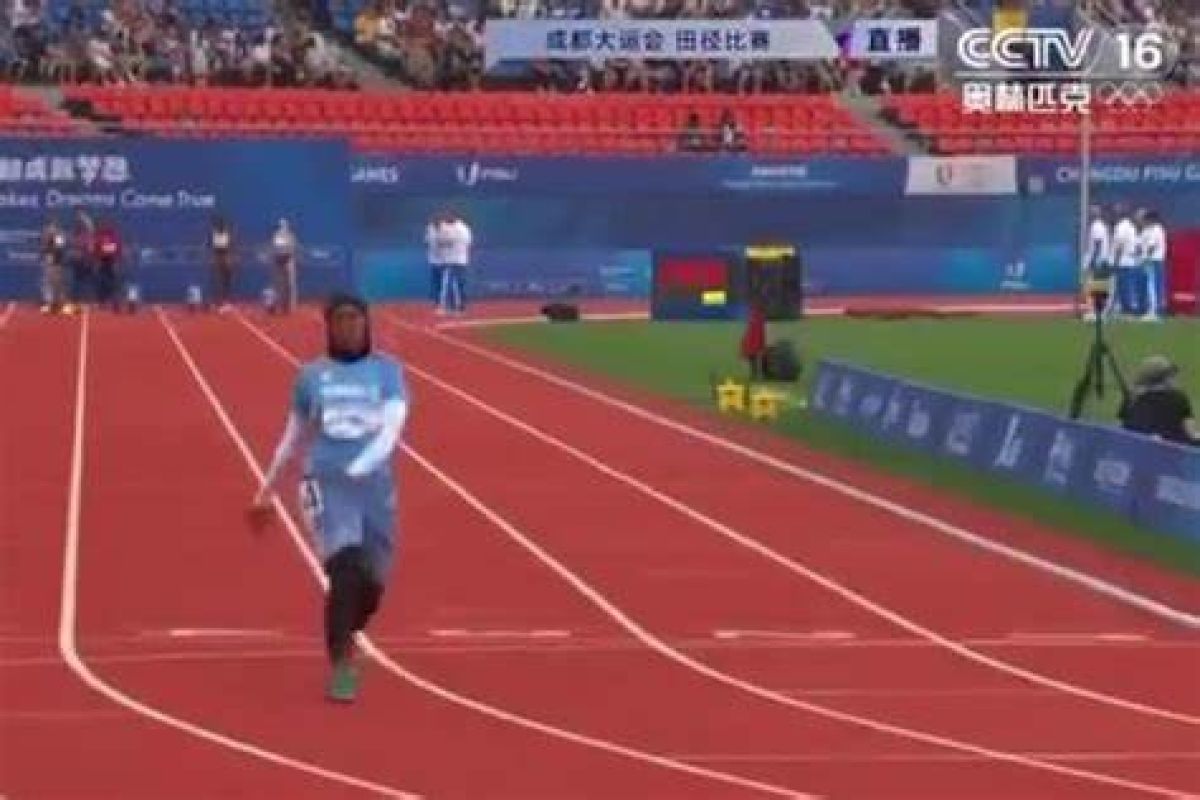
As sports have grown globally, becoming an intrinsic part of our society and culture, there has been a concurrent rise in a far less appealing aspect - corruption. It's a deep-seated issue that transcends borders and sports disciplines, as evidenced by two recent episodes involving African athletes - the Somali runner Nasra Abukar and African footballers competing in the FIFA World Cup.
In athletics, the curious case of Nasra Abukar recently made headlines at the World Univeristy Games held in China. Representing Somalia, Abukar participated in a 100m race and surprisingly set the record for the slowest time coming in at an abysmal 21.81 seconds, a staggering 10 seconds behind the winning time. Behind this seemingly absurd anomaly lies a complex web of corruption, which is far from a laughing matter.
The Ministry of Youth and Sports should step down. It's disheartening to witness such an incompetent government. How could they select an untrained girl to represent Somalia in running? It's truly shocking and reflects poorly on our country internationally. pic.twitter.com/vMkBUA5JSL
— Elham Garaad ✍︎ (@EGaraad_) August 1, 2023
Abukar's slow time is largely attributed to a lack of training, which, in turn, is a result of limited resources and a lack of support from local governing bodies. However, the underlying problem is deeply rooted in corruption and nepotism within the sporting administrative bodies, leading to Nasra being selected in the first place despite not having the ability to compete at such a level.
Moving to the world of football, a similar narrative unfolds. African footballers, despite showcasing exceptional talent and skill on the global stage, have long faced disparities in pay and treatment. In an industry riddled with corruption, their plight is amplified.
The disparity was so egregious that it led to FIFA's landmark decision in 2023 to pay World Cup prize money directly to players. This move came in response to a global outcry and lobbying by the players themselves, who had to battle systemic corruption and indifference within their football federations.
The new payment scheme ensures that each player participating in the World Cup, right from the group stages, receives a fixed sum of money, irrespective of the discretion of their national associations. While this does not entirely solve the corruption problem, it offers a protective mechanism against the misappropriation of prize money, which has historically been rampant.
These instances underline the pressing need to combat corruption in sports. It is critical to establish transparent and accountable mechanisms at all levels of sports administration, from local clubs to international governing bodies.
Moreover, there should be significant investment in athlete development, with strict oversight to ensure funds reach the intended recipients. The adoption of technology for transparent financial transactions, rigorous auditing, and stronger whistleblower protection mechanisms can further aid this battle against corruption.
In the fight against corruption, athletes must also play their part, just as the African footballers did. Their resilience and activism have set a strong example for others to follow. Meanwhile, sports fans and the public need to continue supporting these athletes, thereby pressuring sports bodies to prioritize fairness and integrity.
Corruption in sports is a global issue, that affects the growth, potential, and spirit of athletes. As illustrated by the cases of Nasra Abukar and the African footballers, this corruption has real, detrimental effects on athletes' careers and lives. As such, it is a collective responsibility, shared by governing bodies, athletes, and the public, to eradicate corruption from sports and restore the true spirit of fair play.



